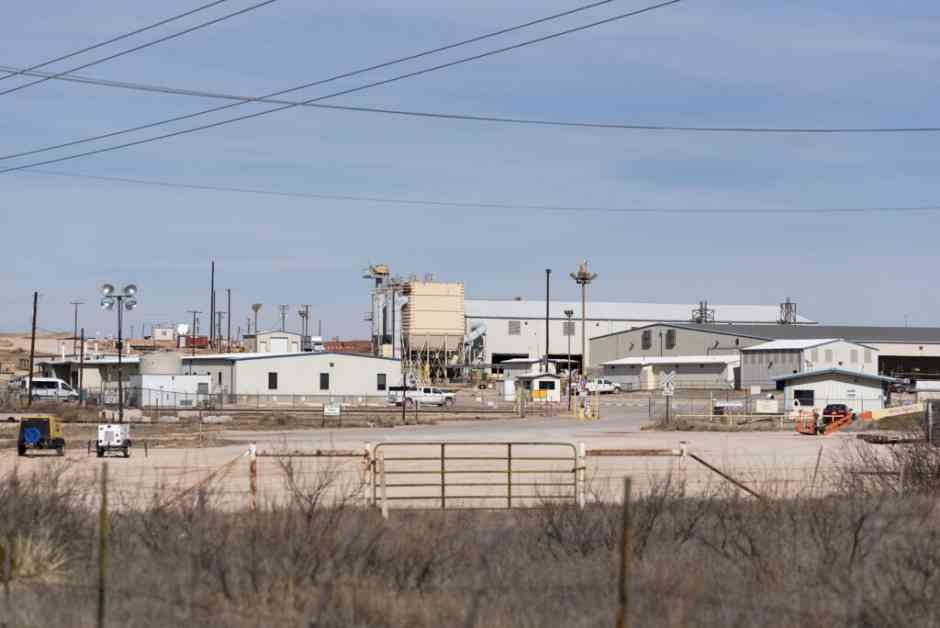The U.S. Supreme Court is set to hear arguments in a groundbreaking case that could determine whether Texas will become the first state to host an independent disposal ground for spent nuclear fuel. This case has far-reaching implications, as thousands of tons of high-level radioactive waste are currently stored at nuclear power plants nationwide, awaiting a permanent national disposal site that has eluded federal authorities for decades.
The state of Texas has positioned itself as a future nuclear powerhouse with ambitious plans, but a recent lawsuit filed by state leaders and a local oil company against the Nuclear Regulatory Commission (NRC) has brought the issue to the forefront. Monica Perales, an attorney representing Fasken Oil and Ranch, expressed concerns about the potential consequences of the NRC’s actions. She warned that if left unchecked, the abuse of authority by the NRC could result in all of America’s spent nuclear fuel, and possibly even foreign waste, being indefinitely deposited in Texas and New Mexico.
Legal Battle and Federal Response
In 2023, a panel of federal judges ruled in favor of Texas, prompting the Supreme Court to review the case following an appeal by the NRC. The NRC, however, declined to comment on the ongoing litigation, citing its policy regarding such matters. The agency maintained that it has the authority to license the temporary storage site for spent uranium fuel in West Texas, operated by Waste Control Specialists, despite objections from Texas and Fasken Oil.
Waste Control Specialists submitted its application in 2016 to establish a Consolidated Interim Storage Facility that would house spent nuclear fuel on a temporary basis. The facility’s design aims to store this waste until a permanent repository is built and operational, with an initial licensing term of 40 years. However, the absence of a permanent storage solution has raised concerns over the potential long-term implications of interim sites becoming de facto permanent waste repositories.
State Opposition and Court Rulings
As plans for the storage facility progressed, several Texas cities, including Dallas, voiced opposition to the project, citing fears about transporting high-level nuclear waste through their jurisdictions. Governor Greg Abbott and the Texas Legislature also took steps to block the disposal of radioactive waste outside of working power plants in the state. These actions culminated in a legal battle that ultimately led to a ruling by the Fifth Circuit Court of Appeals in favor of Texas and Fasken Oil, resulting in the cancellation of the site’s license.
Judge James Ho’s opinion highlighted the legal framework governing nuclear waste storage in the U.S., emphasizing the need for long-term solutions rather than temporary fixes. With the accumulation of spent uranium fuel increasing annually, the court underscored the importance of establishing a comprehensive waste repository to support the expansion of nuclear power in the country.
The Supreme Court’s upcoming review will address key questions surrounding the case, including the right of plaintiffs to seek judicial review and the NRC’s authority to license private entities for temporary storage of spent nuclear fuel away from reactor sites. Against the backdrop of Texas’ nuclear ambitions, this decision will shape the state’s role in the future of atomic power generation.
As the legal battle unfolds, the fate of Texas’ nuclear waste disposal site hangs in the balance, underscoring the complex interplay between state interests, federal regulations, and environmental concerns. The outcome of this case will not only impact Texas but also set a precedent for how the nation handles its growing stockpile of radioactive waste. Stay tuned for updates on this pivotal Supreme Court decision in June.














